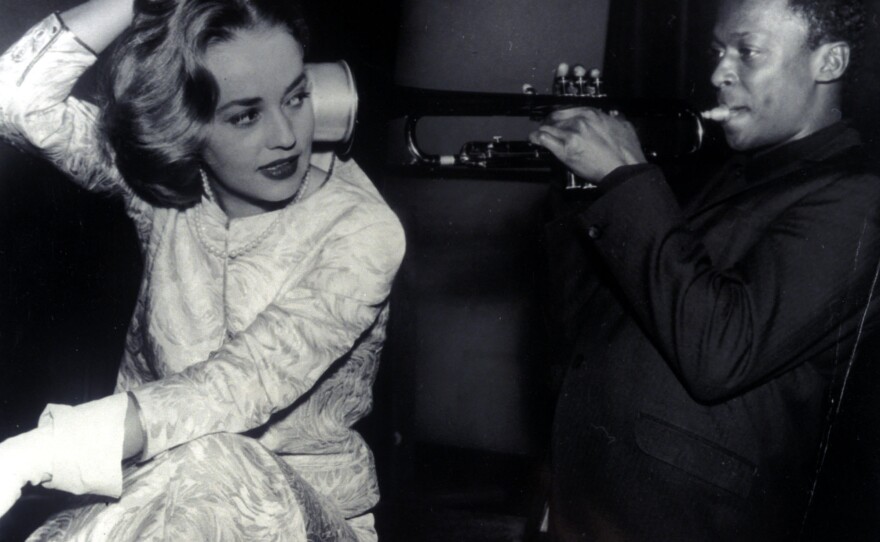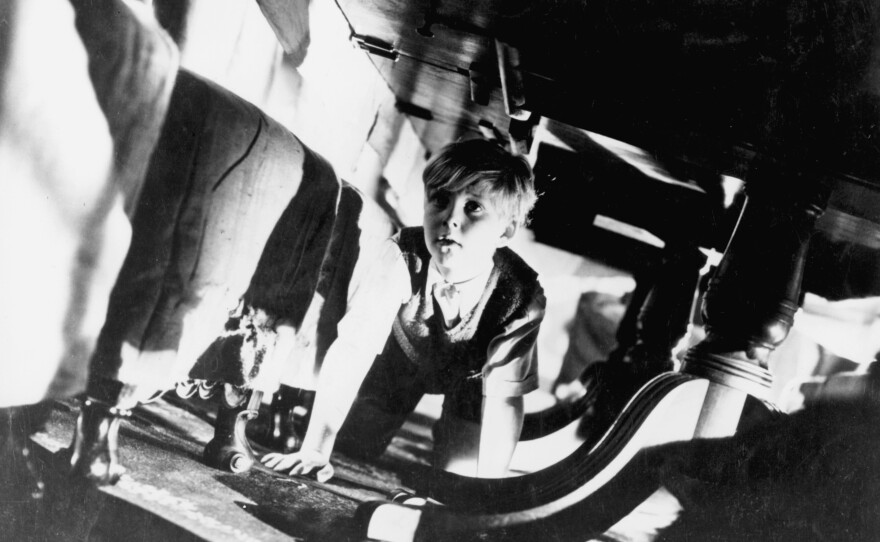I’m tired of coming out of a movie theater and saying the film I just saw wasn’t bad. I’m tired of settling for mediocre when I want jaw-dropping cinema.
But this week instead of lowering the bar, I’m raising it thanks to Rialto Pictures. Rialto continues to pursue its mission of getting restored classics into theaters. Malle’s “Elevator to the Gallows” and Reed’s “The Fallen Idol” will play in tandem at the Ken Cinema through Thursday, Sept. 22.

'Elevator to the Gallows'
Made in 1958, “Elevator to the Gallows” is one of the films that helped launch the Nouvelle Vague or French New Wave Cinema, and it marked Malle’s bold debut as a feature filmmaker.
From the opening shot of “Elevator to the Gallows,” which has also been known by the titles “Frantic” and “Lift to the Scaffolds," you know you are witnessing something fresh and new in cinema. And the amazing thing is that it still feels fresh and new.
The shot is an extreme close up of the incredible Jeanne Moreau. She is on the phone and she tells the man on the other end of the line that she loves him. Then the opening credits — big, bold, chunky titles of the performers’ names— come up.
Almost immediately we are thrown into a plot about Moreau’s Florence and her lover, Julien (Maurice Ronet). Florence’s husband is Julien’s boss, and the two lovers have a plan to kill him. Within minutes of the credits, the plot to murder Florence’s husband is set in motion, and we are sucked into the simple but carefully thought out conspiracy.
The care in detailing the murder recalls the work of Robert Bresson in terms of the clean, matter-of-fact manner in which it is conveyed. And that should not come as a surprise since the young Malle had worked as Bresson’s assistant on “A Man Escaped” just a year before he shot “Elevator to the Gallows.”
In a manner reminiscent of Bresson yet not completely derivative, Malle depicts the preparation for the murder without passing moral judgment. He just reveals a meticulous concern for how it’s done.
The murder comes off without a hitch and the killer is about to make his getaway by car but then he notices a careless oversight — a rope he used to climb down to his boss’ office still dangles from the roof. So he runs back into the building only to be trapped in the elevator as the power is shut down as the offices are closed.
Meanwhile, Louis (Georges Poujouly) enviously eyes Julien’s car that’s still purring away on the curb. When the driver fails to return, Louis steals the car and asks his girlfriend, Veronique (Yori Bertin), the local flower shop girl, to come along on the joy ride. But as they fly down the road, Florence sees the pretty shop girl hanging out of Julien’s car and wonders if he has betrayed her.
Malle executes his scenes with cool, precise care in the office building, and with more reckless abandon in the outdoor scenes. But with every frame he challenges expectations. Plus, he employs a stunning score by Miles Davis as the perfect complement to his noir-style tale of love and murder.
Malle may be better remembered here for his later films — “Pretty Baby,” “My Dinner with Andre” and “Atlantic City” — but this early example of his work is breathtaking and invigorating. (An interesting side note: one of Malle’s earliest jobs upon graduating from film school was as an assistant for Jacques-Yves Cousteau on the ocean documentary “The Silent World.”)
Moreau, with whom Malle would work many more times, is of course exquisite. Even though she is young there’s a maturity to her performance and a sense of weary experience. The young lovers played by Poujouly and Bertin, bring a boisterous contrast to the somberness of Florence and Julien’s world, and they send the film careening in an unexpected direction.
"Elevator to the Gallows" (in French with English subtitles and in Henri Decae’s glorious black and white) reminds one of the rebellious spirit of the French New Wave that was just about to explode on the screen. It’s a kind of energy that’s sorely lacking in today’s cinema.

'The Fallen Idol'
“The Fallen Idol,” made a decade before Malle’s film, marked the first collaboration of director Carol Reed and writer Graham Greene. They would famously join forces again on “The Third Man.”
The story involves Phillipe (Bobby Henrey), a lonely young boy whose parents are French diplomats in London. The parents are often away and that leaves Phillipe in the care of embassy butler Baines (Ralph Richardson in a masterfully underplayed performance). Phillipe adores Baines, who spins wild tales about exploits in Africa. The film looks to what happens when Phillipe thinks his idol has murdered someone.
The film brilliantly captures a child’s perspective on an adult world, a world he doesn’t comprehend. Baines is having an affair with a young woman (Michele Morgan) and his shrewish wife (Sonia Dresdel) is trying to catch the illicit lovers together. The kind of lies, deceits and secrets these adults engage in prove to be a complete bafflement to the boy.
Reed also proves to be as masterful a suspense filmmaker as Hitchcock. There is a scene in which a telegram, a potential piece of incriminating evidence, is made into a paper airplane that gets sent into an agonizingly long flight toward a police inspector at the bottom of some stairs. This is the kind of jaw-dropping moment I live for in movies.
“The Fallen Idol” rivals any Hitchcock film for ramping up tension and also for breaking that tension with well, delicious humor. In “The Fallen Idol” this happens when some cleaning ladies speculate if there is any blood to be mopped up. After all, a bone might have poked through from a broken neck and leave blood to clean up.
If you are in the mood for a film that is guaranteed to deliver artistic satisfaction, then check out these classics coming to the Ken Cinema.






